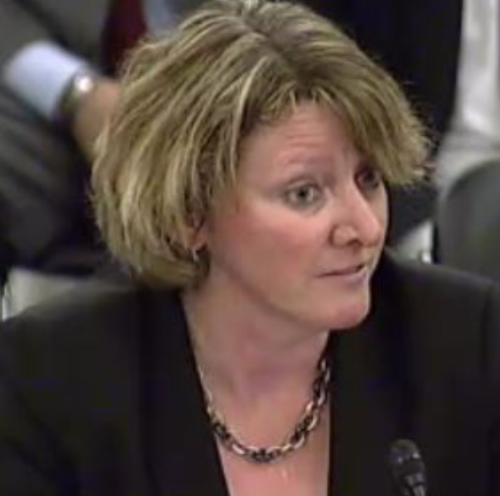BVA provides inadequate reasoning for decision

What is the Deep Issue in the Case?
Because a medical exam opinion addresses issues of material fact, the BVA must provide a statement of the reasons or bases for its determination that is “adequate to enable a claimant to understand the precise basis for the Board's decision, as well as to facilitate review in this Court." Allday v. Brown, 7 Vet.App. 517, 527 (1995).
Here, the BVA denied multiple conditions on the grounds that the VA opinions against the claim were adequate. The BVA found the exams were adequate by stating in a conclusory matter, without specifics, that the examinations were performed by medical professionals based on review of the claims file, solicitation of history and symptomatology from the veteran and an examination of the veteran.
Are general and conclusory statements by the BVA, without reference to specific medical conditions or facts, adequate reasoning of the adequacy of the exam?
What did the CAVC Decide?
The court said no.
The CAVC decision quoted the language that the BVA wrote to “reason” the adequacy of the exams:
The [Appellant] underwent VA examinations in September 2012, April 2014, and May 2014 to obtain medical evidence regarding the nature and severity of the claimed disabilities. The Board finds the VA examinations and opinions to be adequate for adjudication purposes. The examinations were performed by medical professionals based on review of the claims file, solicitation of history and symptomatology from the [Appellant] , and examination of the[Appellant] . The examination reports are accurate and fully descriptive. Opinion is provided as [to] the nature and etiology of any diagnosed conditions. As such, the Board finds that the [Appellant] has been afforded adequate examination[s]. The Board finds that VA's duty to assist with respect to obtaining a VA examination or opinion has been met”
The Court was terse in its decision:
Unfortunately, the foregoing statement of reasons or bases by the Board fails to (1) make any determination regarding the adequacy of the October 2010 eye examination or (2) address the very fact-specific inadequacies argued by the appellant in his November 2016 brief to the Board and here on appeal.
Takeaway Points for VSOs and Veterans Disability Lawyers:
Junk Science abounds at the BVA and the VA Regional Offices.
The documents that pass as “opinions” from the VA can range from a scribbled note on a prescription pad, to a 5 page cut and paste job that the examiner uses in every case.
As you represent your clients at the VA Regional Office and the BVA, know that opinions authored by VA “experts” are used to do 2 things:
1) Deny claims
2) Give a rater “cover” for granting service connection that is obvious to every other doctor
I want to be more supportive of the VA in discussing their "medical opinions"; however, as one who takes seriously the importance of competent and credible evidence in the pursuit of the search for "the truth" in a judicial process, I find VA exams to be, almost without exception, garbage.
I struggle to temper my language in the discussion of them given the fact that the VA and BVA apply uniquely high standards - some might say an adversarial double standard - to private medical expert opinions and testimony.
The BVA will often rubber-stamp junk-science or poorly written exams, as the Veterans Law Judge did in this case. This time, the BVA judge got caught and received a wag-of-the-finger from the court.
Many times, they do not get caught; more experienced senior judges know how to write decisions that are hard to attack on appeal.
The solution is not always possible or practical: be sure that there is an adequately reasoned expert opinion in favor of the claim - ideally one that is preferred by a competent and qualified doctor. If you can, have the private expert examine and comment on the methodology or conclusions of the VA examiner.
In this case, had there been an adequate private medical exam in the record, the advocate could have made a strong case for reversal by the Court. If you strike an inadequate exam from the record, and all that is left is a competent and adequately reasoned private exam, then any objective observer will be able to reach only one conclusion in your client’s favor.
Whatever you do, never - ever - file a Notice of Disagreement or a VA Form 9 that fails to challenge the competence and credibility of the VA examiner, and that questions the examiner’s methodology and reasoning. Then, be sure to ASK for the inclusion of the expert’s credentials, methodology, and research/notes to be included in the Claims File.
This challenge alone can serve to insulate most of your clients against bad VA opinions even if the BVA VLJ is senior enough to know how to right an “appeal-proof” decision while relying on the VA’s junk science.
If you think you have a case where the VA provided an inadequate medical exam, or the BVA failed to provide adequate reasons and bases for its reliance on a VA C&P opinion, reach out to me and request a consultation on your BVA Decision.
Likewise, if you need help understanding how to protect your client from the adverse impact of the VA's junk science in its medical exams, please contact my office and we can set up a time to talk.
Case Details
Link to the CAVC Single Judge Decision on the CAVC Website
Link to the BVA Decision on CAVC Website
Deciding Judge: Judge Amanda L. Meredith (link to bio on CAVC website)
VA Office of General Counsel Attorney: Mark Vichich
Veteran Representation at CAVC: Deanne L. Bonner-Simpson, attorney
Board of Veterans Appeals Veterans Law Judge: H. Seesel
VA Regional Office: St. Petersburg, FL
Veteran's Rep at BVA: Veterans Advocates of Michigan
Date of Decision: December 11, 2017
* Photograph of Judge Amanda L. Meredith is from Congressional hearing testimony; original copyright holder is unknown, please contact website administrator if you hold the copyright to this photo so we can provide proper credit.

